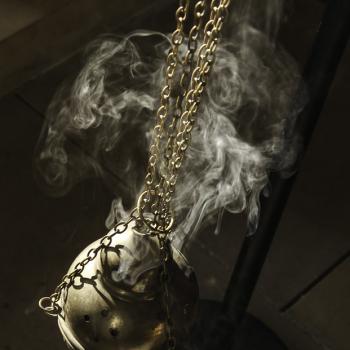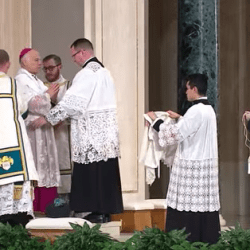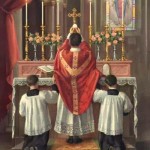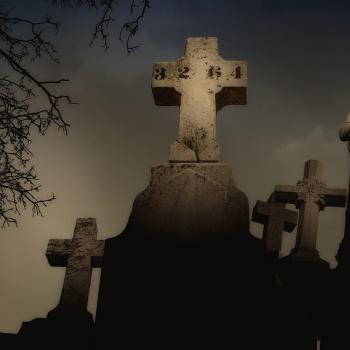One priest offers his perspective on the music many teenagers hear at youth liturgies:
Will the kids today who are raised on a diet of Praise and Worship continue to practice the Faith when they are no longer of that age middle-aged people in the Church want to cater to? I don’t know.
But my experience has brought me to reflect on why Praise and Worship Music is not appropriate for the liturgy:
1. P&W music assumes that praise is worship.
All of us are called to lift our hearts, minds and voices to God in prayer. A particular type of prayer is praise, when we recognize God’s goodness, holiness and mercy by our own actions of praise. Praise has always been accompanied by music. Praise has always been something that takes place on an individual or small group level. It is often spontaneous and takes the form of culturally relevant symbols and forms. Praise is something common to all Christians and to many other religions.Worship is indeed a type of praise, and music is an integral part of it. But the sacred liturgy is the public prayer of the Church, a corporate worship by which baptized Catholics enter into a Mystery which is not of their making. Being a corporate action, it is governed by law and tradition so as to preserve its unity throughout the world and its fidelity to the Message revealed by God. Worship is a Christian act of the baptized gathered by bonds of communion with the visible institutional Church.
P&W music actually identifies worship with praise, by grafting the freer and more individualistic nature of praise onto the communal prayer of the Church’s worship.
2. P&W music assumes that worship is principally something we do.
Martin Luther defined the Mass as a sacrifice of praise. It is something we render to God. The Council of Trent solemnly defined against Luther that the Mass is a true sacrifice. The Mass is the re-presentation of the Sacrifice of Christ to His Father on Calvary in the Holy Spirit. The Mass is something that Jesus does, the Redemption, the fruits of which are shared with us in the Sacrament of Holy Communion. Worship is not Praise, but Sacrifice and Sacrament. Worship is something that Jesus Christ brings about in us through His self-offering to the Father.P&W music reduces the Mass to a sacrifice of praise that we offer to God. Even when P&W proponents assent to the teaching of the Church on the Mass, it is as an abstract truth of faith. In the concrete, our sacrifice of praise is grafted onto that Sacrifice of Redemption. It overlooks the fact that it is the Sacrifice of Redemption that is the highest Praise to the Trinity, and that our participation in it is not by what we do, but by who we are as baptized Christians in the life of grace.
3. P&W music assumes as its first principle relevance.
P&W recognizes that music is important in the Church’s worship. But it also posits that music must “reach people where they are.” It must be relevant to those who hear it. Relevance, however, is an ambiguous notion. What is relevant to me may not be relevant to someone else, and so P&W introduces into the liturgy an element of subjectivism based on human concerns.Often P&W is directed at an ostensibly missionary effort. The idea is that, if people find the music at Mass attractive or relevant, they might be brought into a deeper relationship with God. Yet, faith is a gift that comes from God, not from us. P&W attempts to clear the way for divine action, as if relevance could accomplish that.
There’s much more. Read on.












